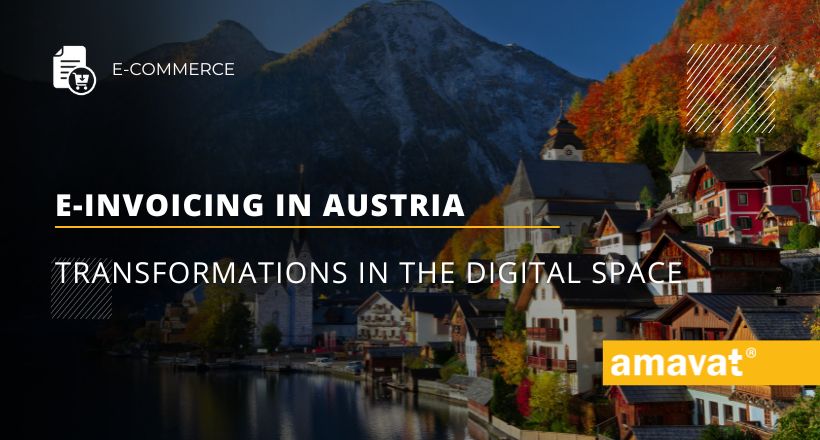E-invoicing in Austria: Transformations in the digital space
E-invoicing, as a key element of digital transformation, is significantly reshaping the landscape of invoice management in both the public and private sectors in Austria. From the mandatory implementation of e-invoicing in public procurement (B2G) to voluntary adoptions in the B2B sector, Austria serves as an example of effective adaptation to modern technological solutions in administration and business.
Mandatory e-invoicing B2G
Mandatory e-invoicing in Business-to-Government transactions (B2G) in Austria has been regulated since 2014 at the federal level, in accordance with the ICT consolidation law. Electronic invoices submitted to Austrian public administrations must be transmitted via the Peppol network in Peppol BIS format. Alternatively, the central platform e-rechnung.gv.at can be used, which accepts both Peppol BIS 3.0 and the local ebInterface format (from version 4.3 onwards). Although e-invoicing is not mandatory for local public administrations, many of them also accept invoices through the Peppol network. It is important that all invoices sent are archived for 7 years in compliance with legal requirements.
E-invoicing B2B: Voluntariness and incentives
Unlike the public sector, where e-invoicing is mandatory, e-invoicing business-to-business (B2B) transactions in Austria remains at a voluntary level The decision to adopt e-invoicing lies with individual businesses, which can benefit from its implementation. The Austrian government and numerous business organizations actively encourage the adoption of e-invoicing as a step towards greater efficiency and sustainable economic development.
The Unternehmensserviceportal (USP), serving as the central portal for businesses, plays a crucial role in facilitating the transition to e-invoicing. The portal provides not only technical support but also essential information regarding the implementation of e-invoicing. Through USP, businesses can easily acquire necessary technological competencies and adapt to changing legal norms and standards concerning electronic document exchange.
The benefits of e-invoicing in B2B transactions are considerable. Primarily, the electronic format eliminates the need for manual processing and archiving of paper documents, reducing the risk of errors and speeding up accounting processes. Moreover, e-invoicing promotes automation of accounting processes and enables better management of financial flows within a company.
It is worth noting that while e-invoicing is not legally required in B2B transactions, its adoption is becoming increasingly common among Austrian businesses. This trend aligns with the global digitization of business processes, which enhances competitiveness and contributes to more efficient resource utilization and environmental impact reduction through decreased paper consumption and emissions associated with document transportation.
As of now, Austria has not set a date for mandatory e-invoicing in B2B transactions. For information on mandatory e-invoicing implementation dates in other EU countries, refer to our article: Mandatory e-invoicing for B2B and B2G in Europe: Implementation deadlines.
Technical details of B2G e-invoicing in Austria
B2G e-invoicing in Austria is based on technical specifications harmonized by the central platform e-rechnung.gv.at and the Peppol network.
The e-rechnung.gv.at platform provides updated guidelines containing detailed information on the e-invoicing process for all Austrian federal public administrations as well as many local administrative units.
E-invoicing via the Peppol network is the standard for all federal public administrations in Austria as well as numerous local administrations. Peppol facilitates the identification and exchange of e-invoices in Peppol BIS 3.0 format.
Managed by the Austrian Ministry of Finance, the e-rechnung.gv.at platform requires e-invoices to be submitted in one of the accepted formats. Local ebInterface formats (e.g., versions 4.3, 5.0, 6.0, 6.1) compliant with EN 16931 and Peppol BIS 3.0 formats are available.
Companies must undergo an authorization process via the Unternehmensserviceportal (USP) to transmit e-invoices through the central platform. There is an option to bypass this authorization step by using registered service providers within USP.
Methods of delivering e-invoices to the e-rechnung.gv.at platform include manual entry via an online form, manual submission of e-invoices, and automatic transmission via a web service.
Additional required fields in e-invoices may vary depending on the specific public administration, such as purchase order number, supplier number, or special fields related to BBG (Austrian Public Procurement Agency).
Summary
Despite e-invoicing not being mandatory in B2B transactions, Austria has established solid legal and technological frameworks supporting the development of e-invoicing in the public sector and encouraging its voluntary adoption in the private sector. This facilitates Austria’s acceleration of digital transformation and promotes efficiency and sustainable economic development through modern technologies.





